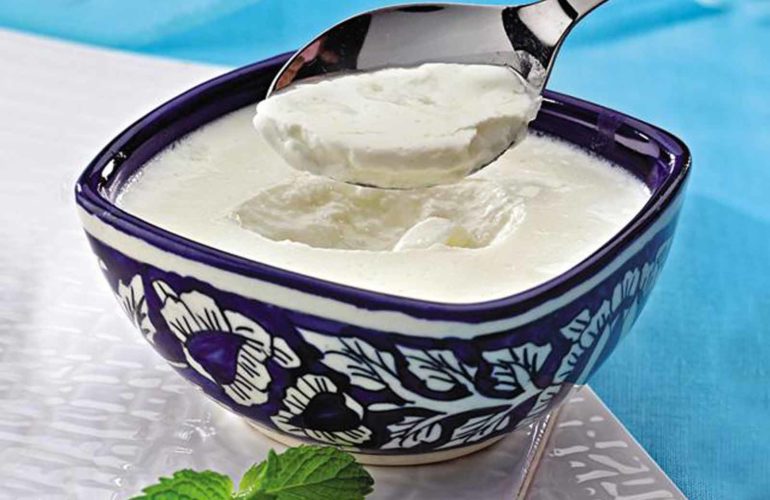Almost all of us make some or the mistake while consuming curd. Freshly homemade curd is filled with countless number of beneficial live bacteria. These bacteria are good for improving digestive flora and kill harmful viruses as well. Apart from being a perfect meal accompaniment, curd also has a whole lot of other health benefits. It is loaded with calcium, vitamin B 2, B 12, magnesium and potassium. However, it is imperative to consume curd in a certain way and at a certain time for accuring it’s best benefits
Why should you not consume refrigerated / store bought curd ?
- Once the curd has been refrigerated, the quantity of friendly bacteria decreases and thus the health benefits of the curd reduces
- Store bought curd is cold, heavy and difficult to digest
- It may infact lead to weight gain
What happens when you eat curd ?
- People taking antibodies are often advised to eat curd to replace healthy bacteria in the body
- People who have trouble digesting milk may find that fresh curd is much easier to digest and actually aids in digestion as well
- Curd helps reduce bloating and also provides relief from constipation and diarrhea
- Ayurveda recommends taking curd in the form of a drink known as chaas
- You should always use last curd culture or khatta
- Ideally curd should be set in a clay / earthen pot, avoid using metal containers
- If you don’t have clay pots, use ceramic, glass or stoneware
Ayurvedic properties of curd
- Quality : Heavy
- Nature : Appears to be cold but it’s hot in nature
- Effect on dosha : Balances vatta, may increase kapha and pitta
- It improves fat, digestive fire and strength
Eating it right
- Eating curd wrongly or with wrong food combination can cause number of ailments like asthma, skin disorders, laziness, indigestion and digestive problems
- Don’t consume curd which isn’t fully set, it is very unhealthy
- Sweet curd or less sour curd increases mucus, kapha and fat but reduces pitta and vata
- You can add natural sweetners like jaggery powder, desi khand or honey
- Extremely acidic curd : vitiates the blood
Can be add salt to the curd ?
- Avoid adding refined or table salt to the curd
- Add only rock salt to the curd
- Adding white salt kills all the bacterial properties in the curd
- Chemicals in the white salt are enemies of bacteria
Wrong food combination with curd
- With oily food : It slows down the digestion and makes you feel lethargic
- Curd with non veg : can lead to indigestion and create other stomach related issue
- Curd and onions : this hot / cold combination can lead to skin allergies and some other similar issues
- Curd with fruits : can cause toxicity in the body
- Avoid mixing melons with curd
- Curd with milk : can lead to acidity and gas in stomach
- The right combination
- Curd with rice
- With green gram
How and when to consume curd ?
- Anytime before sunset is a good time to have curd
- Occasionally you can have curd empty stomach but not a regular basis
- Always mix curd with a spoon / wood churner, avoid eating soild chunks of curd
- For joint pain, add dry ginger powder
- Curd should not be consumed at night
- Avoid heating the curd
- One should avoid curd in monsoon and autumn seasons
- One should not eat curd daily
Curd is heavy in nature, you have to increase your physical activity while eating curd on a regular basis
